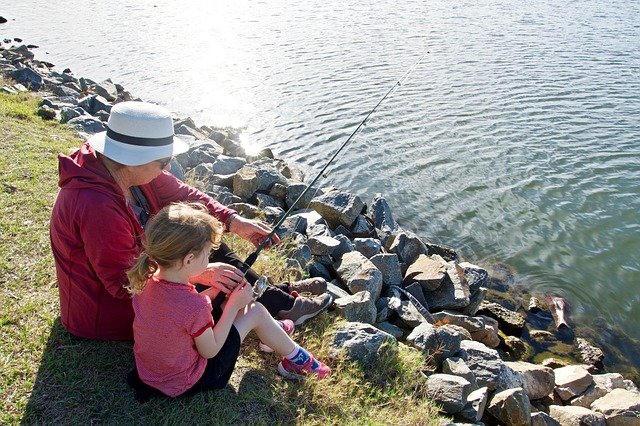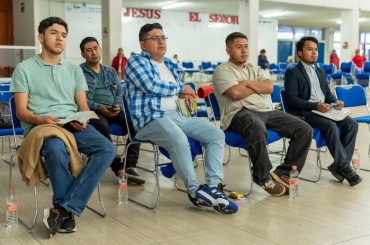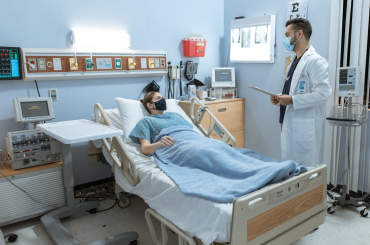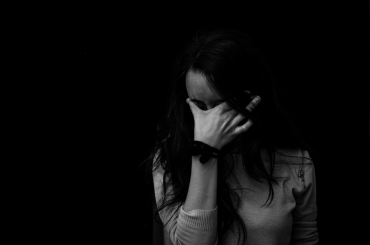Kids may not know if one of their parents is struggling with addiction, but they can still sense when something is wrong. And that constant sense of uneasiness can keep a child on edge, leaving a lasting mark on their emotional well-being.
About 7.5 million children in the U.S. have at least one parent who suffers from alcoholism, while about 2.1 million children have at least one parent who struggles with drug addiction.
So, if you suffer from addiction, how do you talk to your child about what you are going through?
Be Honest
Your first impulse might be to hide that you are suffering from addiction, especially because this condition can cause feelings of shame. But it’s important to be honest with your child about what’s going on.
Addiction can change a person’s behaviors and personality, and when a child doesn’t understand why someone they love is doing things that are hurtful or out of character, they might worry that they’ve done something wrong or that it’s their fault.
Without any stability, they may start to withdraw, act out, or struggle in school. But having an open conversation with them about your struggles with addiction can help them regain a sense of safety.
Keep It Age-Appropriate
What you tell your child should be guided by their age and maturity level, which means that the way you talk to a 7-year-old should be different from the way you talk to a teenager.
There are a lot of age-appropriate ways to explain your situation to your child. It might be as simple as telling them that mommy or daddy is sick, and that’s why they do things that they normally wouldn’t.
Every child is different, so use your best judgment when deciding how to frame what you tell your child.
Explain What Addiction Is
Explaining to your child that you have an illness, much like someone who has diabetes or heart disease, can help them understand why you are behaving in ways that might be confusing.
Addiction is a chronic, complex disease that affects the way a person’s brain responds to drugs or alcohol. And the intense cravings and painful withdrawal symptoms caused by addiction can make a person behave in ways that harm those they love, including their children.
But with appropriate treatment, recovery from addiction is possible.
Depending on your child’s age, it may help to explain some of the symptoms you are experiencing so that your child can get a clearer picture of what you are going through. They will likely also benefit from knowing that, despite these challenges, you’re still there for them as their parent and that you’re doing what you can to get better.
Let Them Ask Questions
Kids are bound to have questions, so offering them answers can go a long way in easing your child’s concerns. You may also want to consider asking your child how they feel about some of the behaviors they have seen. Remember to actively listen to them and try to validate their feelings.
By creating an open forum to talk about addiction, you’re sending a powerful message to your child that there is nothing to be ashamed about. This allows you to reiterate to your child that addiction is a disease and that your struggles with this condition don’t mean that you love them any less.
Get Outside Support
These conversations can be tough, especially when you’re already struggling with the painful symptoms of drug or alcohol addiction. It may be helpful to get some outside support so that you can have a more productive discussion with your child.
Support groups in your area or individual counseling may offer some guidance on how to navigate these conversations. Family therapy can also help bridge any communication barriers between the two of you.
It takes courage to talk to your child about your struggles with addiction, but that conversation will set the groundwork for a better, brighter future for both of you.
About Blue Ridge Mountain Recovery Center
Located in Ball Ground, Georgia, less than an hour north of Atlanta, Blue Ridge Mountain Recovery Center provides residential treatment for adults age 18 and older who are struggling with addiction and certain co-occurring mental health disorders. Nestled on 40 acres in the foothills of the Blue Ridge Mountains, our addiction treatment center provides the ideal environment for adults to solely focus on the recovery process. In addition to residential treatment, we also offer a partial hospitalization program and an intensive outpatient program. For more information, visit www.blueridgemountainrecovery.com.








1 Comment
Hello thank you very much for having the above reading material and new knowledge to me about how My addiction affects my Family. Today I relapsed and used my { D.O.C.} Crystal Meth. Truth be told!!!. Mental Health { various divisions} as well as the 12 Step Narcotics Anonamous Recovery group and sooooooooo very many different help groups and support organizations. {{ too many to list but hopefully one day the important ones that were a HUGE part in giving me the Hope And Faith that there is a way to recover and that they Personally cared enough to hold me up when i almost gave up Actually saved me. { Hopefully one day the Courage to tell my Story will be mustered up. the reason for wanting to share my story about and the Journey of trying to keep going {{THE GOOD – THE BAD – THE REALLY BAD – AND HOW DAMANAGING IT TRUTHFULLY IS LIVING OR REGRESSING AND LEARNING TO ASK FOR AND ACCEPT HELP. WHEN everyday your mind replays dozens and dozens and dozens of flash backs that are so real inside and triggered UNEXPECTALLY OF BOTH THE good and the bad with a newly added safe happy emotional self worth. “”””” so its like being on the scariest fastest tallest roller coaster ride where occasionally the safety bar comes undone. and the brakes fail. oh ya sometimes its stuck in reverse. thanks for helping me. THANKS.